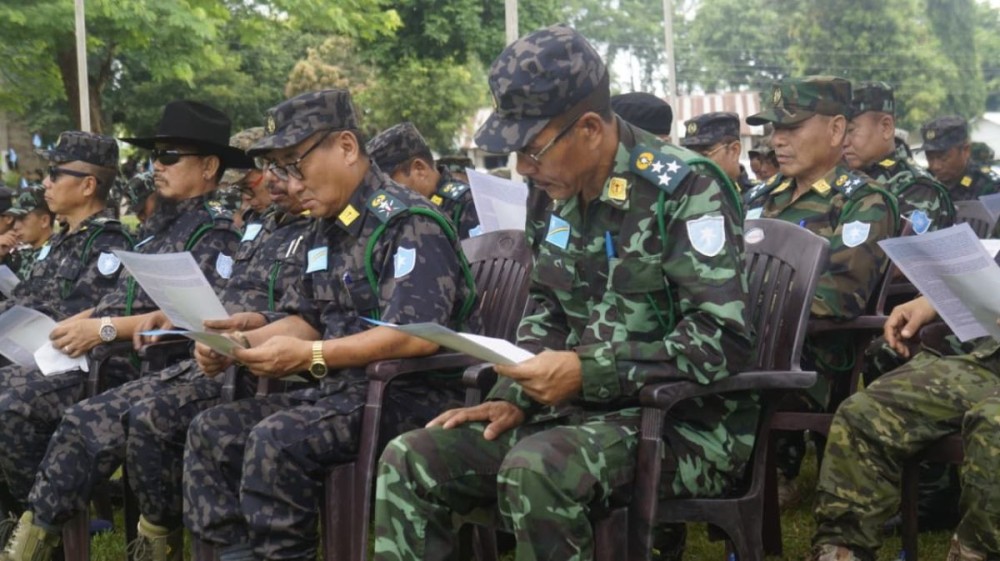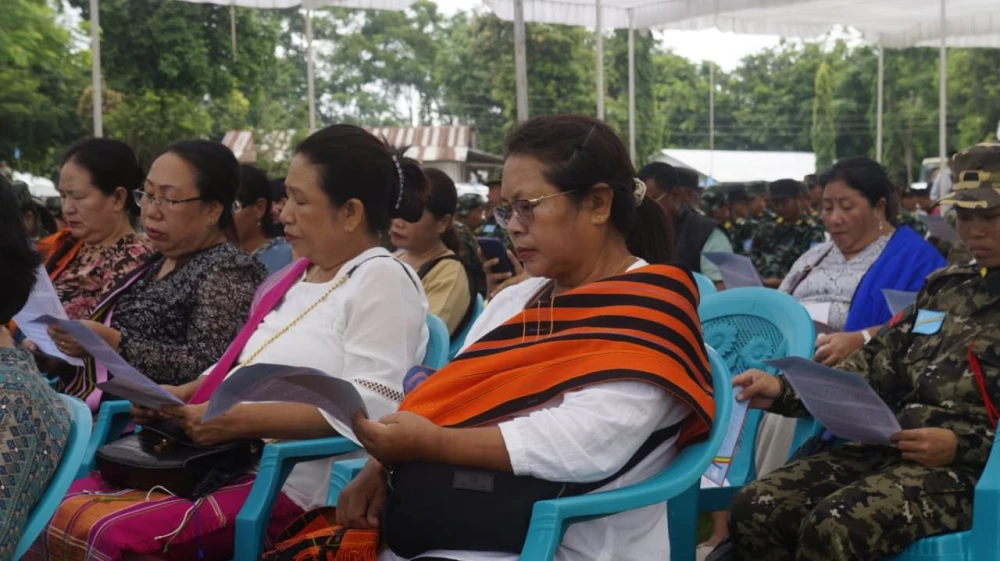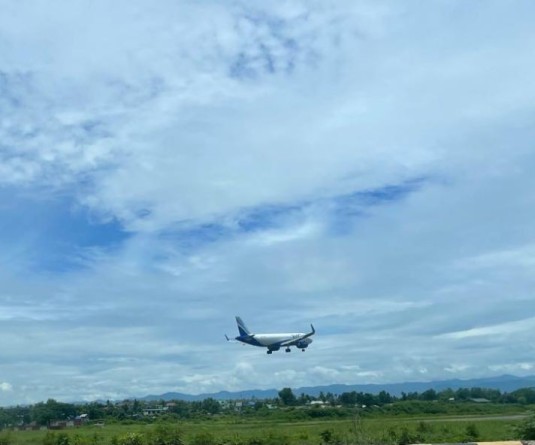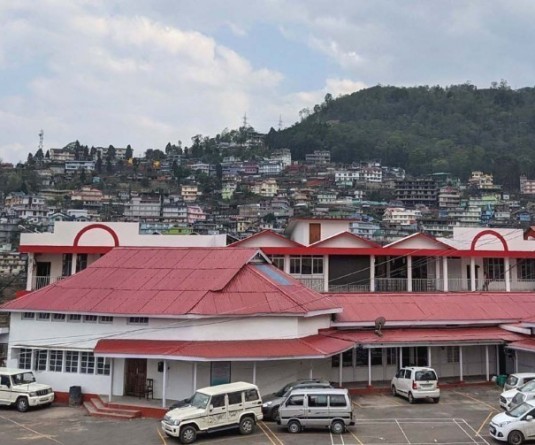NSCN (IM) members during the 79th Naga Independence Day celebrations at the Council Headquarters in Hebron on August 14. (Morung Photo)

Morung Express News
Hebron | August 14
NSCN (IM) general secretary and chief political negotiator Th Muivah on Thursday reaffirmed that Nagalim’s unique history, territory, sovereignty, national flag, constitution (Yehzabo), and integration of all Naga contiguous areas remain “non-negotiable.”
In a speech to mark the 79th Naga Independence Day at the Council Headquarters in Hebron, Muivah, though not physically present, called on the Naga people to uphold their “unique history, sovereign rights, and national identity” while remaining steadfast in the Indo-Naga peace process.

Thanking God for sustaining the Naga nation through decades of struggle against what he termed the “oppression and suppression” of India and Myanmar, he recalled that Nagalim declared independence on August 14, 1947, one day ahead of India. “The painful irony is that we have to fight for the historical and political rights that have touched 79 years today,” he said.
Highlighting the historical roots of the conflict, Muivah accused India’s first Prime Minister, Jawaharlal Nehru, of suppressing Naga aspirations through the Armed Forces (Special Powers) Act (AFSPA) of 1958. He credited former Prime Minister P V Narasimha Rao for initiating the peace process, which led to a ceasefire in 1997 and paved the way for political talks based on three principles -unconditional dialogue, talks at the prime ministerial level, and meetings outside India in a third country.
Muivah said more than 600 rounds of negotiations have been held, culminating in two landmark agreements -the Amsterdam Joint Communique of July 11, 2002, and the Framework Agreement of August 3, 2015. Both, he said, recognised the “unique history and position” of the Nagas and the principle of sharing “sovereign power” between two entities.
.webp)
He credited past Naga leaders such as A Z Phizo, Khodao Yanthan, and Isak Chishi Swu, as well as Indian leaders including Mahatma Gandhi, Atal Bihari Vajpayee and Narendra Modi, for shaping the dialogue. He also acknowledged international organisations like the UNPO, IWGIA, and Society for Threatened Peoples, and Naga civil society organisations including the Naga Hoho, ENPO, UNC, NSF, NMA, and ANSAM, for their role in sustaining the movement.
“We do not demand anything from India and Burma (Myanmar), but we declare and proclaim what is rightfully ours,” his speech read. He urged Nagas to maintain “eternal vigilance” against threats to their God-given freedom and to keep “freedom in the mind, faith in the words, and pride in the heart.” He added that the agreements “significantly speak loud and clear that Nagas are not lost people,” and called on his countrymen to honour their Creator and defend the Naga nation’s sovereign rights.
Delivering a solidarity message, a member of the Naga Hoho maintained that the Naga political solution cannot be realised through mere rhetoric or lofty ideals. He said it could only be achieved through a pragmatic approach, considering contemporary political realities and the future of Naga society. At this “crucial juncture” of the Naga struggle, he called for unity with the sole purpose of achieving a political breakthrough with the Government of India and ushering in a vibrant, peaceful, and prosperous Nagaland.
.webp)
The Naga Hoho urged the NSCN (IM) and all Naga national political groups to reconsider their stance on this historic day to come together and negotiate firmly with the Government of India for the sake of future generations, stating that “the future holds greater significance than the past.”
“Let us look beyond our selfish interests and inflated egos and dedicate ourselves for the common Nagas, whose souls are still suffering and longing for peace,” the Naga Hoho representative said.
The Naga Mothers’ Association (NMA), in its solidarity message, appealed to Indian leaders to respect the rights of the Naga people and expedite the negotiation process to its final settlement at the earliest.
The programme included solidarity messages from the Global Naga Forum (GNF), United Naga Council (UNC), Tirap Changlang Longding People’s Forum, Naga People’s Movement for Human Rights, and Naga Students’ Federation (NSF).
The commemoration also featured the hoisting of the Naga National Flag, a silent prayer in memory of the martyrs, rank declaration, patriotic renditions by Pelao Konyak, Lemmichon Khapai, and Akumdong Jamir, and a vibrant folk dance performance by the Marok Dibuia Cultural Club, Dimapur.





